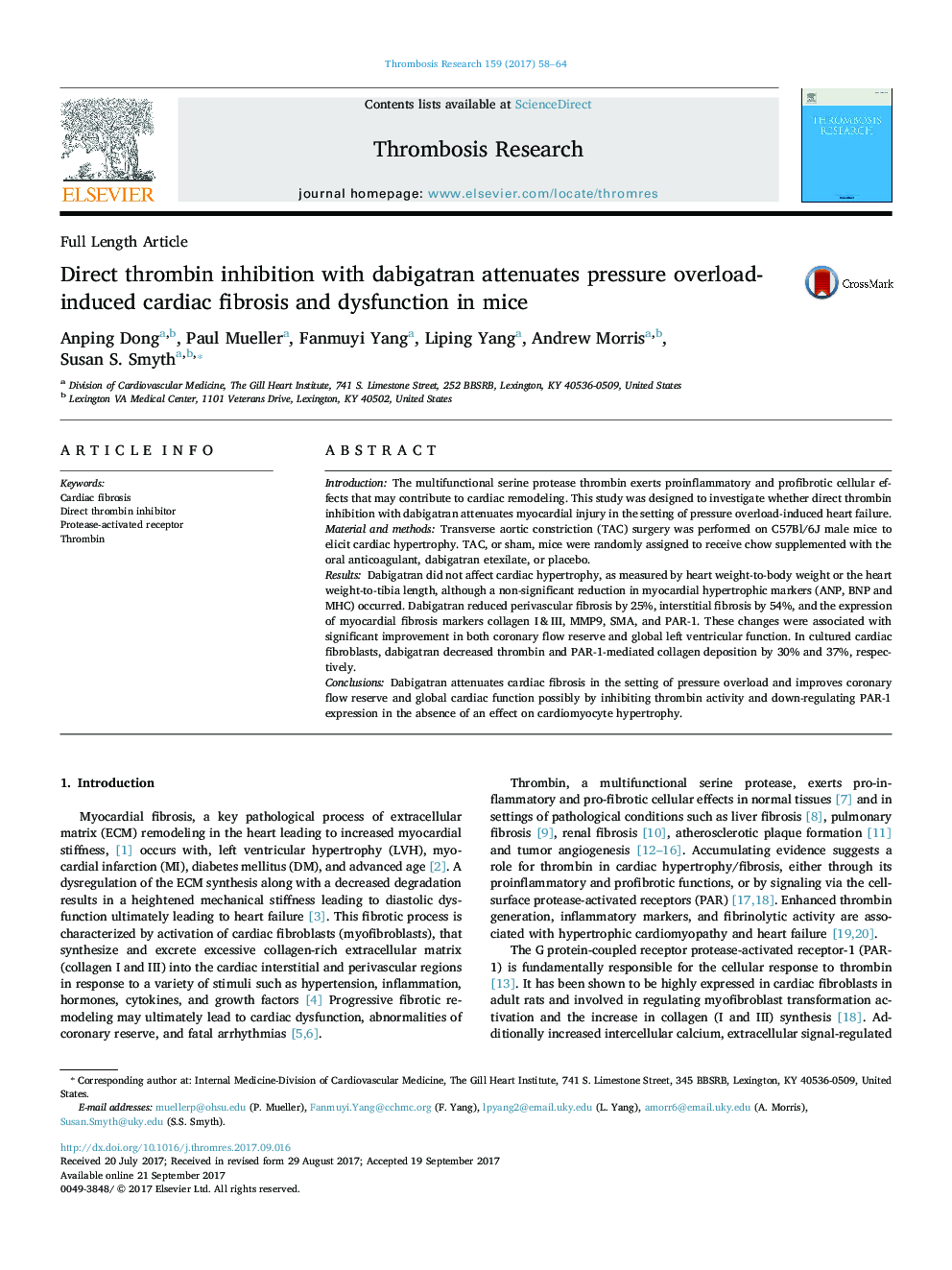| Article ID | Journal | Published Year | Pages | File Type |
|---|---|---|---|---|
| 5621774 | Thrombosis Research | 2017 | 7 Pages |
â¢Direct thrombin inhibition had no effect on pressure-induced cardiac hypertrophy.â¢Direct thrombin inhibition reduces the development of cardiac fibrosis in the setting of pressure overload.â¢Reduction in cardiac fibrosis was associated with improvements in coronary flow reserve.
IntroductionThe multifunctional serine protease thrombin exerts proinflammatory and profibrotic cellular effects that may contribute to cardiac remodeling. This study was designed to investigate whether direct thrombin inhibition with dabigatran attenuates myocardial injury in the setting of pressure overload-induced heart failure.Material and methodsTransverse aortic constriction (TAC) surgery was performed on C57Bl/6J male mice to elicit cardiac hypertrophy. TAC, or sham, mice were randomly assigned to receive chow supplemented with the oral anticoagulant, dabigatran etexilate, or placebo.ResultsDabigatran did not affect cardiac hypertrophy, as measured by heart weight-to-body weight or the heart weight-to-tibia length, although a non-significant reduction in myocardial hypertrophic markers (ANP, BNP and MHC) occurred. Dabigatran reduced perivascular fibrosis by 25%, interstitial fibrosis by 54%, and the expression of myocardial fibrosis markers collagen I & III, MMP9, SMA, and PAR-1. These changes were associated with significant improvement in both coronary flow reserve and global left ventricular function. In cultured cardiac fibroblasts, dabigatran decreased thrombin and PAR-1-mediated collagen deposition by 30% and 37%, respectively.ConclusionsDabigatran attenuates cardiac fibrosis in the setting of pressure overload and improves coronary flow reserve and global cardiac function possibly by inhibiting thrombin activity and down-regulating PAR-1 expression in the absence of an effect on cardiomyocyte hypertrophy.
